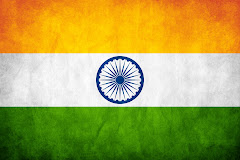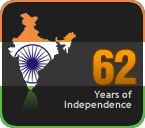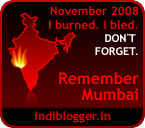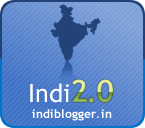Type: National
Date: January 26
The Republic Day of India is the day that marks the adoption of the Constitution of India and the transition of India from a British Dominion to a republic on January 26, 1950. It is one of the three national holidays in India.
Although India obtained its independence on August 15, 1947, it did not yet have a permanent constitution; instead, its laws were based on the modified colonial Government of India Act 1935, and the country was a Dominion, with George VI as head of state and Earl Mountbatten as Governor General. On August 29, 1947, the Drafting Committee was appointed to draft a permanent constitution, with Bhimrao Ramji Ambedkar as chairman.
A draft Constitution was prepared by the committee and submitted to the Assembly on November 4, 1947. The Assembly met, in sessions open to public, for 166 days, spread over a period of 2 years, 11 months and 18 days before adopting the Constitution. After many deliberations and some modifications, the 308 members of the Assembly signed two hand-written copies of the document (one each in Hindi and English) on January 24, 1950. Two days later, the Constitution of India became the law of all the Indian lands. The Constitution of India came into effect only on January 26, 1950. Following elections on January 21, 1950, Rajendra Prasad was elected as the president of India. The Indian National Congress and other parties had been celebrating January 26th as a symbol of Independence, even before India actually became independent. Thus, signing the constitution on January 26, to mark and respect January 26 and the freedom struggle and the freedom fighters.
Granville Austin has described the Indian Constitution drafted by Ambedkar as 'first and foremost a social document.' ... 'The majority of India's constitutional provisions are either directly arrived at furthering the aim of social revolution or attempt to foster this revolution by establishing conditions necessary for its achievement.'
The amending mechanism was lauded even at the time of introduction by Ambedkar in the following words: "We can therefore safely say that the Indian federation will not suffer from the faults of rigidity or legalism. Its distinguished feature is that it is a flexible federation.
"The three mechanisms of the system derived by the Assembly, contrary to the predictions, have made the constitution flexible at the same time protected the rights of the states. They have worked better than the amending process in any other country where Federalism and the British Parliamentary system jointly formed the basis of the constitution"
What Sir Anthony Eden, the Prime Minister of Britain (April 1955 to January 1957), said at the time of the emergence of Indian Republic is relevant in this context. He said, ‘Of all the experiments in government, which have been attempted since the beginning of time, I believe that the Indian venture into parliamentary government is the most exciting. A vast subcontinent is attempting to apply to its tens and thousands of millions a system of free democracy... It is a brave thing to try to do so. The Indian venture is not a pale imitation of our practice at home, but a magnified and multiplied reproduction on a scale we have never dreamt of. If it succeeds, its influence on Asia is incalculable for good. Whatever the outcome we must honour those who attempt it.’
Even more meaningful was the opinion expressed by an American Constitutional authority, Granville Austin, who wrote that what the Indian Constituent Assembly began was ‘perhaps the greatest political venture since that originated in Philadelphia in 1787.’
"During recent years, it has become fashionable among some citizens to disparage the founders and their document. These individuals disappointed by the developments in the country since 1950, have called for changing the constitution explaining that it has not 'worked'. Such thinking, in my view, is misguided. Constitutions do not 'work', they are inert, dependent upon being 'worked' by citizens and elected and appointed leaders"
India hosts another head of state as the chief guest on this day. The strategic importance of any nation as associated by India can be easily seen in this list.
Year Guest Name Country
1976 Prime Minister Jacques Chirac France
1978 President Dr.Patrick Hillery Ireland
1980 President Valery Giscard d'Estaing France
1985 President Raul Alfonsin Argentina
1986 Prime Minister Andreas Papandreou Greece
1987 President Alan Garcia Peru
1988 President Junius Jayewardene Sri Lanka
1992 President Mário Soares Portugal
1993 Prime Minister John Major United Kingdom
1995 President Nelson Mandela[1] South Africa
1996 President Dr. Fernando Henrique Cardoso Brazil
1997 Prime Minister Basdeo Panday Trinidad and Tobago
1998 President Jacques Chirac France
1999 King Birendra Bir Bikram Shah Dev Nepal
2000 President Olusegun Obasanjo Nigeria
2001 President Abdelaziz Bouteflika Algeria
2002 President Cassam Uteem Mauritius
2003 President Mohammed Khatami Iran
2004 King Jigme Singye Wangchuk Bhutan
2006 King Abdullah bin Abdulaziz al-Saud Saudi Arabia
2007 President Vladimir Putin Russia
2008 President Nicolas Sarkozy France
2009 President Nursultan Nazarbayev Kazakhstan
2010 President Lee Myung bak Republic of Korea
Reference : Wikipedia, the free encyclopedia
Farmers, Technology and Freedom of Choice: A Tale of Two Satyagrahas
-
*This is the 23rd installment of The Rationalist, my column for the Times
of India.*
I had a strange dream last night. I dreamt that the government had p...
6 years ago
















0 comments:
Post a Comment